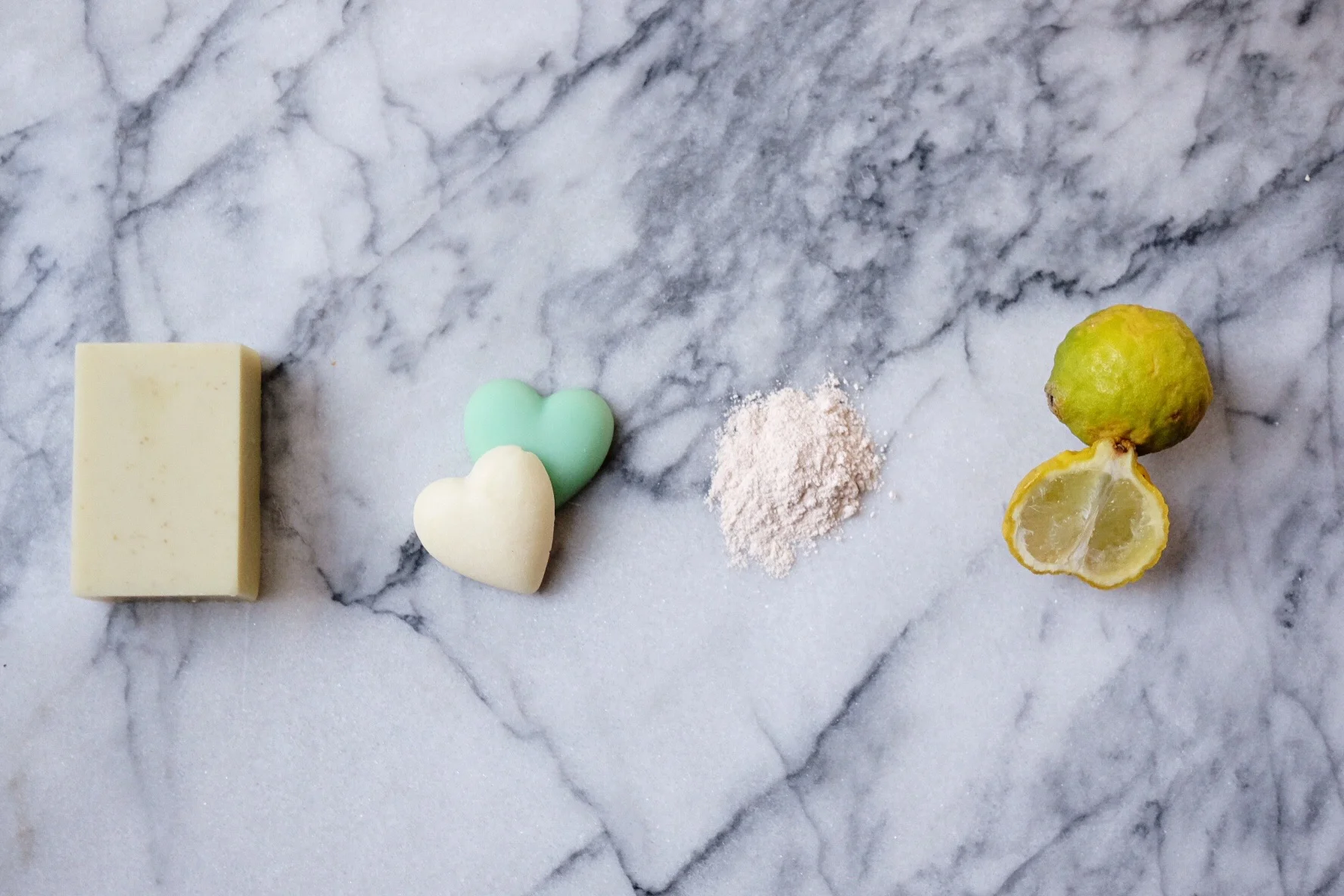Zero Waste Shampoo Alternatives
Who knew there were so many different options outside of store bought shampoo? Whether it's for health, environmental, or ethical reasons, here are a few options and my personal experience with them!
Bar Shampoo
Bar shampoo is just like what it sounds like: a solid shampoo that looks just like a bar of soap. In my experience, there are two different types that are most commonly found, traditional soap that is made of saponified oils, and surfactant based shampoos with the liquid (usually water) component taken out.
Saponified oil is how traditional soap is made the good old fashioned way. You blend a variety of oils together, and in this case, specifically for lathering and nourishing your hair and scalp. This combo is mixed with lye and saponification occurs (and all the lye is gone after saponifcation, so you don't have to worry about that). Many people have success with this type of shampoo bar. However, I haven't had such luck. It could be my hair type in combination with our extremely hard water in LA, as soap scum starts to build up that no amount of ACV rinsing would get rid of. But that doesn't mean it won't work for you! I've heard great things about J R Liggett's, as well as The Soap Kitchen's shampoo bars. Many options are vegan and come in minimal or easily recyclable packaging.
Surfactant based shampoo bars are made up of similar ingredients to the bottled type, except water has been taken out. Surfactants lower surface tension to help wash oil and dirt away. While there are many types of surfactants, this ingredient is commonly found in dishwashing detergent, laundry detergent, and sometimes even face wash. While the process of lathering the bar is different than liquid shampoo, I would say the final experience of cleaning and how your hair feels afterwards is the same. This is a good option for those who don't want a big change to their routine. I have personally tried Ethique, which is palm oil free, vegan, and uses coconut based surfactants. It also comes packaged in paper that can be recycled or composted.
Rye Flour
Rye flour is a popular shampoo choice among many zero wasters. It's widely available in bulk (if you have access to such), so you don't have to worry about packaging. Rye flour has a pH of 5, which is similar to our own skin's acid mantle, making it gentle on our skin. Not only that, but rye naturally contains saponins to create a slight lather to aid in cleansing. This is a really gentle and eco friendly option.
My personal experience of using rye is hit and miss. You have to make sure you rinse out really well or you'll have bits of flour stick in your hair! This was difficult for me because our apartment has relatively low water pressure and I have very dense but fine hair. This is also not an option if you are celiac or have a gluten sensitivity as rye contains gluten.
Kaffir Lime Puree
While kaffir lime leaves are a delicious and aromatic ingredient commonly found in Thai food, the limes itself are quite sour and can be bit astringent or bitter. But it turns out they're pretty good as a shampoo! Simply cut the lime into smaller pieces and puree them with a bit of water until it becomes a smooth paste, sort of like a thick green smoothie. Then massage it into your scalp and rinse away. The smell is gorgeous and left my hair feeling clean and incredibly soft. This is a great zero waste option if you have access to limes or if your climate allows, you can even grow your own (how's that for zero waste?!) And because it's just kaffir limes and water, it's vegan friendly and you don't have to worry about palm oil, sulfates, parabens, or gluten. You can blend a bunch and keep it in the fridge for several weeks, and I've heard of it keeping well for months!
Baking Soda and Apple Cider Vinegar
This is probably the most popular zero waste/no poo shampoo I've heard and knew it had to be mentioned. However, this is not something I recommend. There are so many factors that will determine whether your hair will have a positive reaction to baking soda shampoo, such as hair porosity, frequency of washing, and hair type, that I just don't think it's worth the effort. The main negative reaction I've heard is extremely dry and frizzy hair after consistent use. I've also read that the pH of baking soda is very high and harmful to your hair and skin (since your acid mantle is around 5, as mentioned above), while the apple cider vinegar as a conditioner is obivously very acidic. But consistently putting your hair through the highs and lows of pH is stressful and damaging. Lastly, some do not use baking soda as it is a mined resource that is not renewable.

